The cabin air filter is one part of your vehicle’s ventilation system that keeps the air you breathe clean and fresh. It removes dust, pollen, bacteria, and other contaminants from the air entering your car.
Without a cabin air filter in place, your car’s dashboard will display a “Dirty Air Indicator,” which means that the air in your car may get dirty and not as fresh as it should be. Have you noticed that the air in your car isn’t as fresh as it used to be? It could be time for a cabin air filter change.
One of the most important parts of your car, the cabin air filter, protects your engine from contaminants and pollen. If it’s time for a cabin air filter change, we’ll tell you everything you need to know. We will also give you an estimation of how often to change the cabin air filter.
There will be tips on how to do it yourself. If you follow the simple steps mentioned below for changing the cabin air filter in your car, you can breathe well in your vehicle without any hassle.

What Is A Cabin Air Filter?
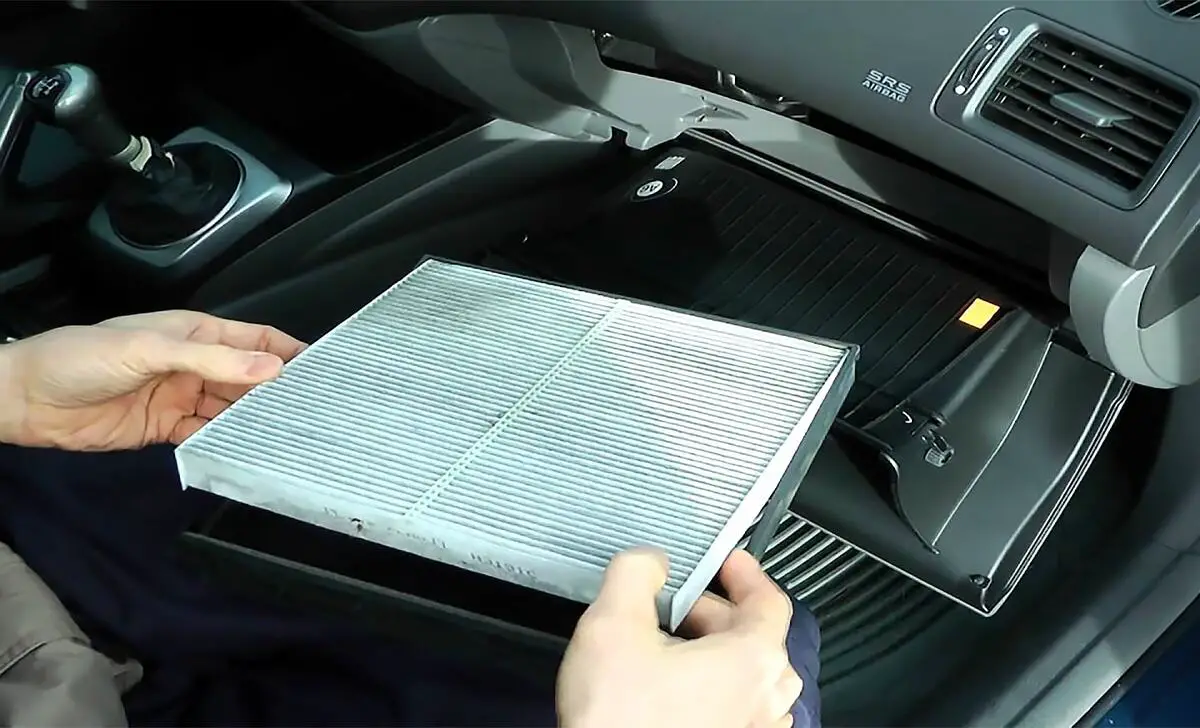
A Cabin Air Filter is a device to help reduce the number of harmful air contaminants inside an airplane cabin. The cabin air filter is a barrier between the cabin air and the outside environment. The cabin air filter traps particulate matter within its fibers, like pollen, dust, bacteria, and viruses.
You should replace a Cabin Air Filter every 6 months or as the manufacturer requires. This helps to keep the air inside the plane clean and safe for passengers. In addition to being easy to use and dispose of, disposable Cabin Air Filters are also cost-effective. They’re highly effective at reducing air pollutants.
Types Of Cabin Air Filters
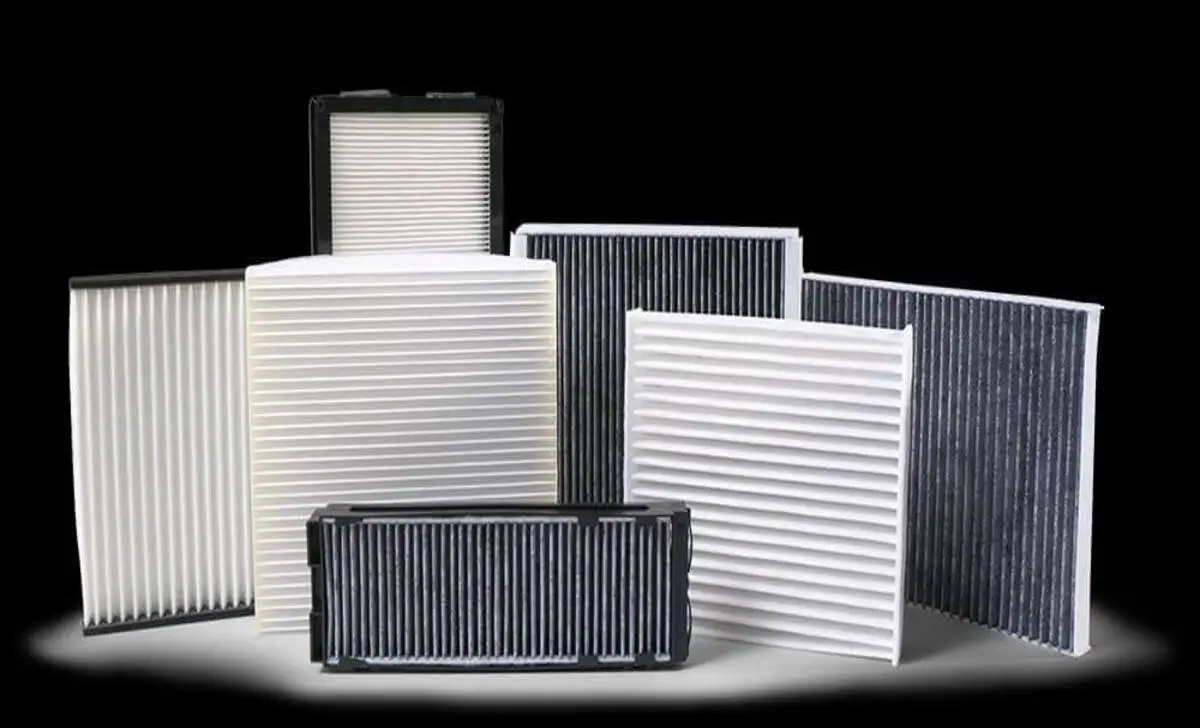
The primary air filter is the most common type of cabin air filter. They are handy to trap large particles and pollen. These types of filters are effective at removing airborne bacteria, odors, and other chemicals. In addition to primary air filters, several other types of cabin air filters are available.
Some examples include cabin air filters with activated carbon, which help to remove odors, chlorine, and other chemicals from the air. Another popular option is cabin air filters with ozone, a powerful oxidizer that can help destroy harmful bacteria and viruses in the air.
Pre-filters are also common in cabin air systems. The pre-filter traps larger particles and debris before it enters the cabin air system. This helps to prevent potential damage to the cabin’s interior and airflow. Finally, post-filters capture small particles and contaminants that may have passed through the other filters. Typically installed after the primary or secondary filter to help clean up any remaining airborne matter.
When Should I Replace My Cabin Air Filter?
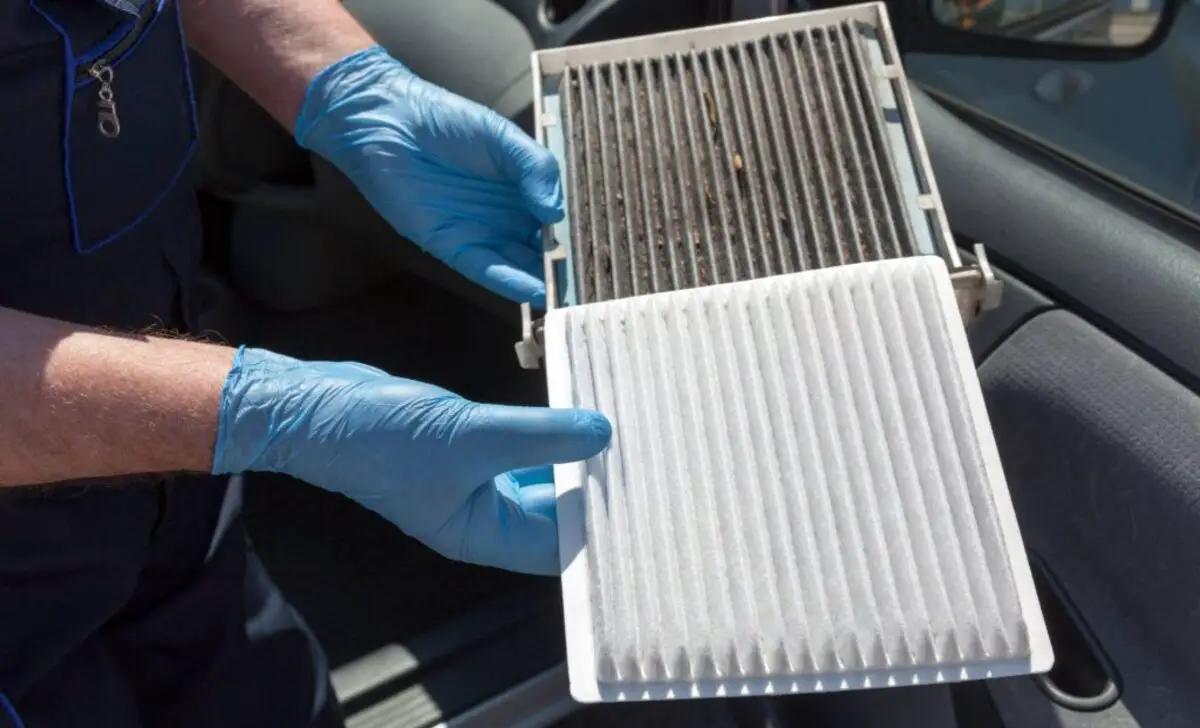
Air filters help to keep the air inside your vehicle clean and free of pollen, dust, and other harmful particles. However, it is important to replace the cabin air filter regularly, depending on your filter type.
For example, if you have a paper air filter, you should replace it every month or two; if you have an electric air filter, you should replace it every 6 months; and if you have a vacuum air filter, you should replace it every year.
Depending on the vehicle, you may need to replace the cabin air filter more often in colder climates. If your car has a pre-installed air purifier, replace the cabin air filter every 12 months to ensure optimal cleaning performance.
An Estimation Of How Often To Change The Cabin Air Filter
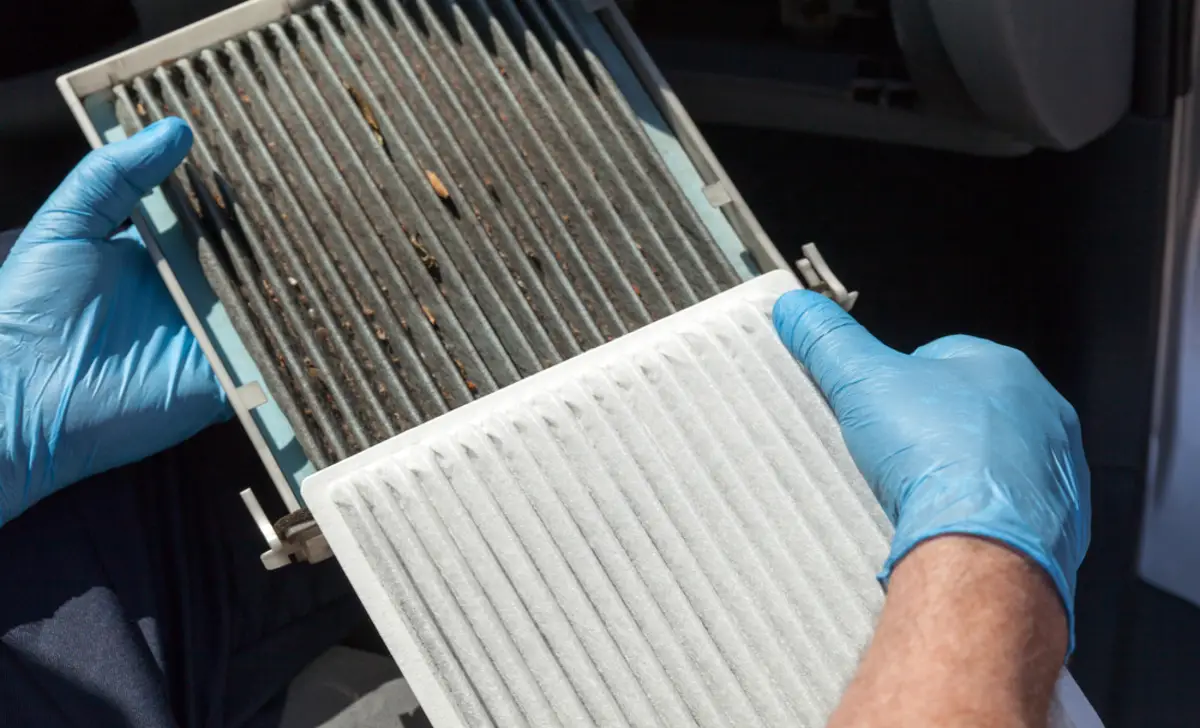
A cabin air filter is crucial to your vehicle’s ventilation system. It helps to reduce the number of harmful pollutants that reach your lungs and can help you breathe easier and more efficiently. The effectiveness of a cabin filter depends on how often you changed it.
If you are still determining whether you need to replace the cabin filter, replace it as soon as possible. You should replace a cabin air filter every 12,000 miles, so it is important to change it regularly to keep the air inside your vehicle clean and safe.
How do I Know if I Need to Replace my Cabin Air Filter?
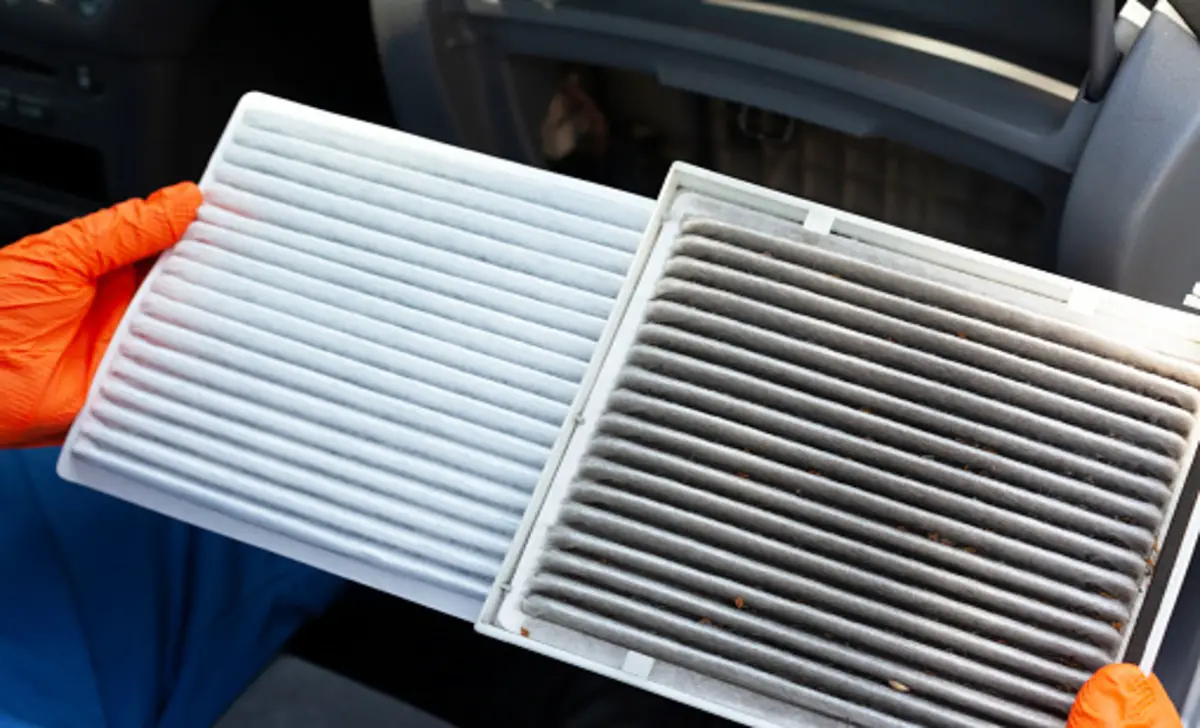
The cabin air filter is a vital component of the air conditioning system. The cabin air filter helps reduce the dust, pollen, and other allergens inhaled by passengers. For this reason, it’s important to replace your cabin air filter every 6 months or as required by your car’s manufacturer.
You can find a cabin air filter replacement at most automotive parts stores. If your car is equipped with a “smoke detector,” the filter may need to be replaced more often, depending on the severity of the smoke condition.
If you experience any unusual smells or problems with your car’s air conditioning, it is advisable to have a professional check the system. Air filters help to reduce the number of pollutants and allergens in the air conditioning system. If the filter is not replaced regularly, it may become clogged and ineffective. The five steps for determining if you need to replace your filter are as follows:
- Check the manufacturer’s guidelines to determine when to replace your filter.
- Observe the condition of the filter.
- Check for signs of wear or tear.
- Compare the weight and size of the current filter with those of past filters.
- Replace the filter if any of the above indicators suggest it is time to do so. This will help ensure that your air conditioning system runs effectively and efficiently while protecting you and your family from harmful air pollutants.
How To Change A Cabin Air Filter
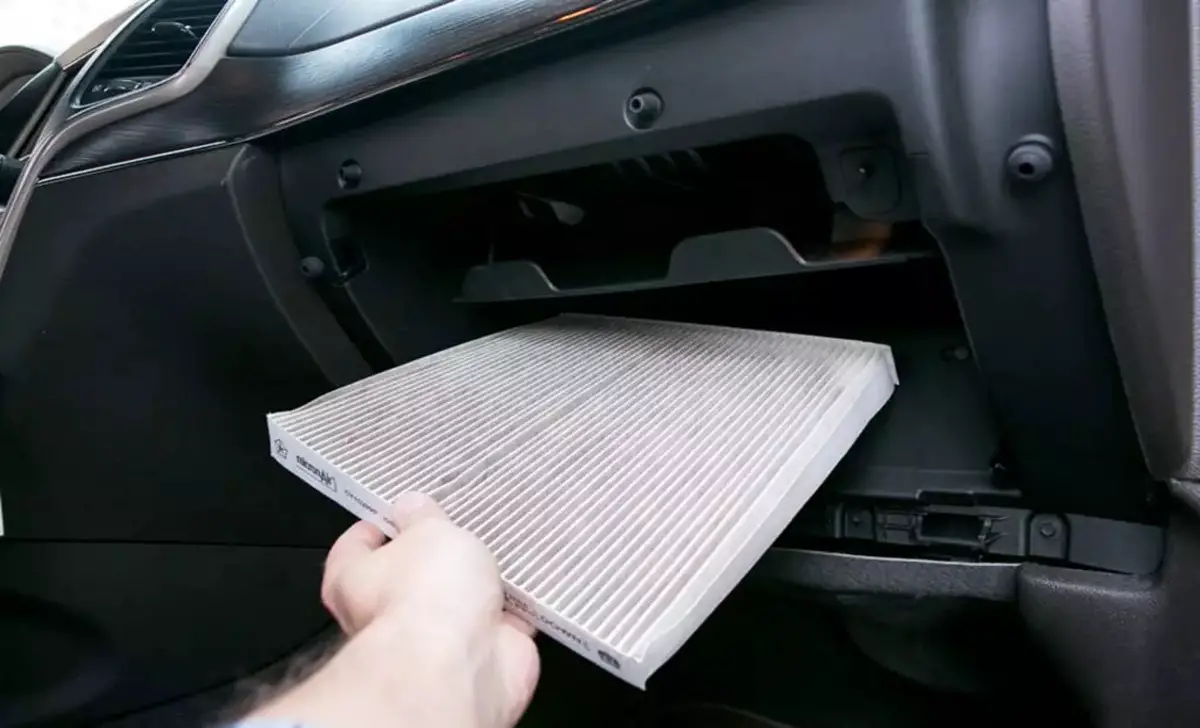
Changing cabin air filters is important for your and your passengers’ health. The air in your car is filled with particles from the air you breathe and the materials you touch. These particles can cause allergies and respiratory problems.
Air filters help to remove these particles from the air. You should replace air filters every 12,000 miles or every three months, whichever comes first. To change the cabin air filter yourself, follow these steps:
To change a cabin air filter, ensure your car’s air conditioning system is turned off. Then, locate the cabin air filter(s) in your car’s dashboard or interior (some cars have multiple filters). Turn on your car’s exterior defrost or vent fan to allow fresh air into the vehicle. Next, remove the old cabin air filter(s) or with a vacuum cleaner attachment.
Some filters have tabs or clips that can break off with a screwdriver or wrench. Rinse out the new cabin air filter(s) with clean water and allow it to dry before replacing it in the air ducts of your car. Once you have replaced the old cabin air filter(s) with the new one, turn off your car’s exterior defrost or vent fan and turn on your interior ventilation fan for about five minutes to allow the new filter to work properly.
Conclusion
Knowing how often to change cabin air filters are essential to protect your family from harmful contaminants like pollen, dust, and smoke. They filter out the fine particles that settle in the cabin air. Without cabin air filters, you would have to constantly open windows, turn on the air conditioner, or use a vacuum cleaner to get fresh air.
Cabin air filter replacements are essential because they allow cabin air to be evenly distributed throughout the cabin. Changing your cabin air filter every season is an easy way to help keep your vehicle’s air quality and your family’s health and safety.
There are a variety of cabin air filter systems available in the market. By choosing the system that best suits your requirements, you can get optimal performance from your air conditioner and enjoy fresher air. You could also opt for an air filter replacement system that works automatically.
However, the decision to change your filter is completely up to you. While cabin air filters are necessary to keep your vehicle’s interior air clean and healthy, they aren’t a substitute for regular vehicle maintenance. Regularly changing your filter allows it to be used efficiently and ensures that the air inside your vehicle is as fresh as possible.
Frequently Asked Questions
1.How Often Should I Change My Cabin Air Filter?
Ans: It would be best if you replaced cabin air filters every 12,000 miles. If you live in a heavily polluted area, you may need to replace your air filter more often. The average cost of a cabin air filter is around $20.
2.What Are The Benefits Of Changing Cabin Air Filters?
Ans: One of the benefits of changing your cabin air filter is that it can help to reduce the number of odors and pollutants in the air. Additionally, by protecting the air conditioning system, a cabin air filter can extend the life of your air conditioning unit. The frequency of cabin air filter replacement also depends on a variety of factors, including the age and type of the air conditioning system.
3.How Much Do I Have To Pay For A New Cabin Air Filter?
Ans: The cost of a new cabin air filter can vary depending on the make and model of your vehicle, but it is generally advised to replace your filter every 12,000 miles. In addition, if you do not have time to change your filter every 12,000 miles, you should replace it once every 3 months.
4.Is There Any Difference Between The Regular And Heavy-Duty Models Of Cabin Air Filters?
Ans: Regular and heavy-duty cabin air filters are both effective in removing pollen, dust, smoke, and other allergens from the air. The important thing to remember is that the importance of regularly changing your filter varies depending on the environment in which you are flying. It is generally recommended to change your filter every 6 months.
5.What Kind Of Information Is Needed To Find Out What Size Cabin Air Filter Will Fit My Vehicle?
Ans: To find out what size cabin air filter will fit your vehicle, you will need to consult the owner’s manual or website. Most vehicles have a filter that needs to be replaced regularly, usually every 6-12 months.
